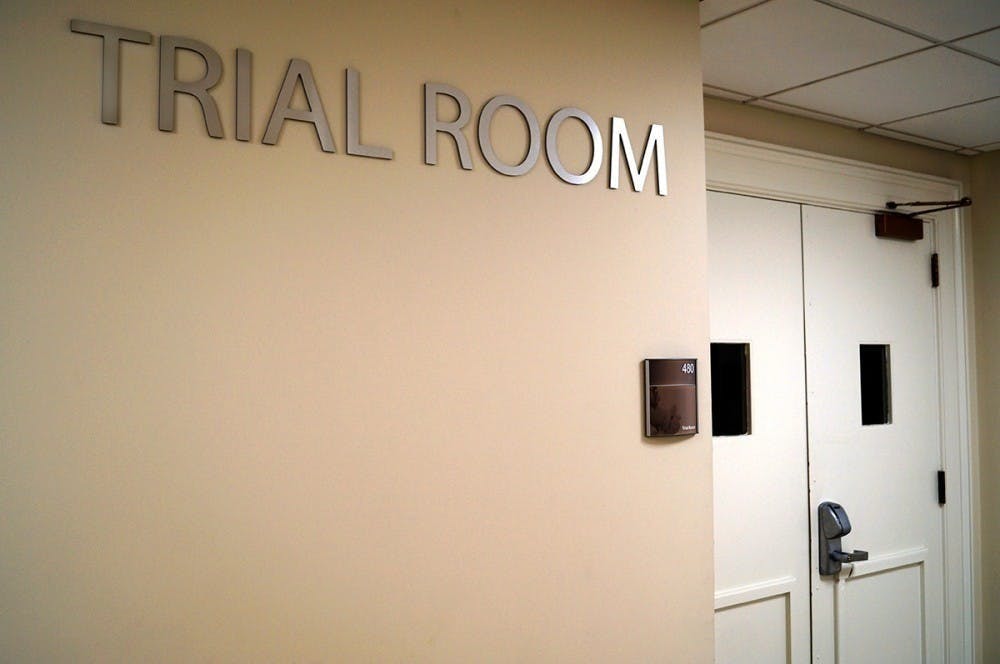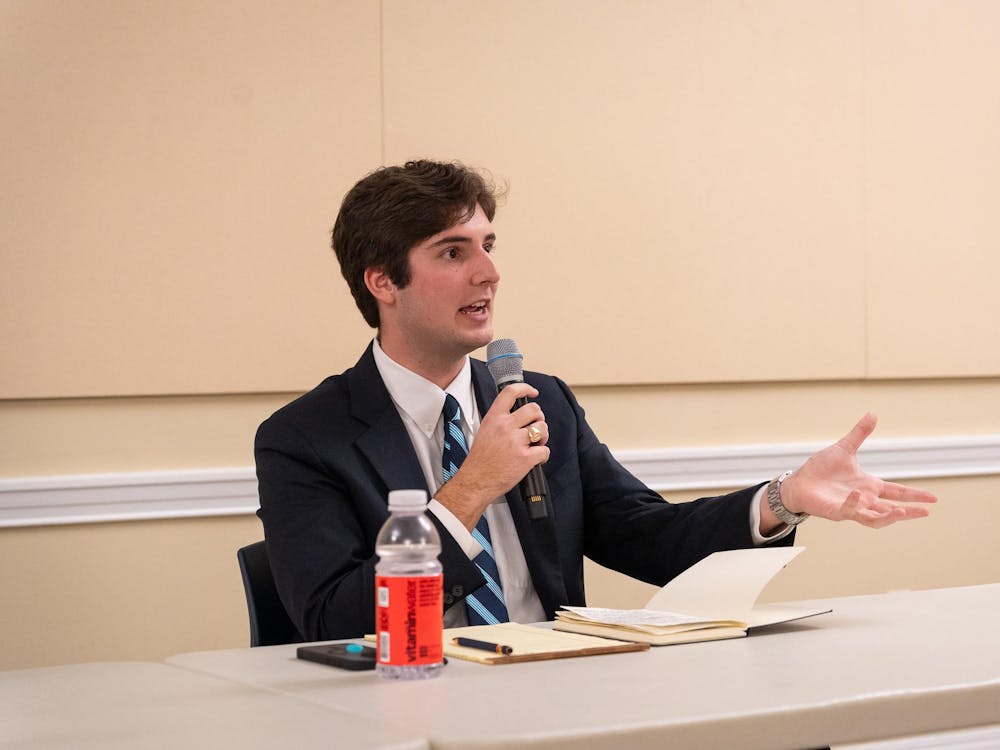The University Judiciary Committee’s case statistics report for the fall semester found that more than half of the cases guilty verdicts passed down in the term were for violations of COVID-19 policy. The report tracks cases that were adjudicated in the last semester, rather than those that have been accepted by the committee.
An accepted case is a complaint that UJC has decided to hear in a trial, and an adjudication is when a verdict — guilty or not guilty — has been made on a case.
A total of 12 cases were adjudicated last fall, a major decrease from the 57 adjudicated last semester. Of these 12 cases, half of adjudications and 65 percent of guilty counts were for violations of the University’s COVID-19 policies, which include masking requirements and gathering limits. In comparison, 46 of the 57 cases last spring or 88.5 percent of cases concerned COVID-19 violations. The latest case concerning a violation of COVID-19 policies was opened in June 2021.
Two cases concern organizations, both of which are fraternities or sororities. The remaining 10 cases involved 17 students. Of these students, four identified as Asian, 10 as white, and three selected more than one racial category. 58.8 percent of cases were members of the Class of 2024.
76.5 percent of cases were male, while 23.5 percent were female. Cases were overwhelmingly undergraduates, with just one accused graduate student. 58.8 percent of accused students were in-state students and 41.2 percent were from out of state. The mean case processing time was 91.3 days, up from 68.6 in spring of 2021.
Lauren Kim, chair of UJC and fourth-year College student, assessed the difficulty of dealing with such large numbers of violations related to COVID-19 mitigation policies in an email to the Cavalier Daily.
“The 2020-21 year definitely pushed us, but the UJC rose to the challenge and was able to successfully adjudicate the influx of cases as well as our normal case load,” Kim said.
100 percent of these cases resulted in a guilty verdict. Assigned sanctions varied from essay-writing and community service hours, to probation or suspension. Some sanctions, — including two expulsion — were only held in abeyance, meaning they can be enacted if the accused party reappears in front of the UJC for a repeated violation of the standards of conduct.
88.9 percent of complainants filed were staff, and the remaining 11.1 percent were faculty members. There were no student complainants.
Students can run for representative positions — who serve as UJC judges — from each of the undergraduate and graduate schools at the University during the election cycle this spring. UJC also has a proposed constitutional amendment on the spring ballot, which would increase the number of College representatives to five.







